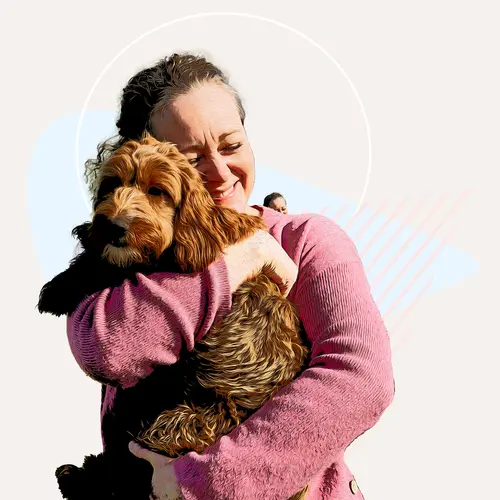No matter what breed of dog you have, you've got a lot of choices to meet your pet's nutritional needs. Some dog food brands are made for specific breeds. You'll also find dog food based on the age, size, or energy level of your dog. Your options include puppy to senior formulas, food for small to extra-large dogs, and food for high to low activity levels.
Your dog should be able to get all the nutrients he needs from commercial dog food unless he has:
- Special needs
- Low nutrition levels because of illness
In these cases your dog may need a special diet. Talk to your vet.
"Overall, dogs' nutritional needs at various life stages are similar," says Louise Murray, DVM, vice president of the ASPCA's Bergh Memorial Animal Hospital. "Most dog sizes and breeds can be fed the same diet, although the amount fed should be tailored to each dog's metabolism and activity to avoid obesity."
Your dog uses nutrients in dog food as a source of energy and to help him grow.
Especially important for your dog are:
- Fats
- Proteins
- Carbohydrates
- Vitamins
- Minerals
- Water
To help you figure out the amount of nutrients your dog needs, your vet can check your pet's current and ideal body condition score. It's like BMI (body mass index) in people.
When you find out the score, your vet can calculate how much to feed your dog to reach and keep this score, says Amy Farcas, DVM. Farcas is a veterinary clinical nutritionist at the University of Pennsylvania School of Veterinary Medicine.
Picking Food for Your Dog
Your dog's age and activity level are important when making decisions about feeding him, Farcas says.
For example, a 50-pound border collie and a 50-pound basset hound have different dietary needs. The border collie will probably need more calories per day because it's a more active dog.
Diets made for active dogs take this into account. The food will likely be higher in fat, which provides more energy than protein or carbohydrates. The other nutrients in the formula will likely be the same as those needed by a less active dog.
Size also plays a role in meeting a dog's nutritional needs. Smaller dogs have a higher metabolism, which means they need more calories per pound than larger dogs, says Lisa Peterson, a spokeswoman for the American Kennel Club and a dog breeder for over 30 years.
The Right Diet for Your Dog
Here are some ways to tell if your dog is getting the right diet.
- Shiny coat and skin
- Good energy level
- Keeps an appropriate weight
- Has a solid stool about two to three times a day
- Good breath
- Clear eyes
"You need to consult with your vet to change your pet's diet," Farcas says, "if your pet has a medical condition, if your vet indicates that your pet should gain or lose weight, if your pet needs to eat significantly more or less of a diet than the package recommends, or if you are not sure if your pet's current diet is appropriate."
How can you tell if your dog's the right weight? Peterson says you should be able to feel your dog's ribs when running your hands along his side. You shouldn't need to press really hard to feel them. Also, looking at your dog's spine from above, you should see an indentation or waistline at the loin (area past the rib cage and before the hips).
Your Dog's Age and Nutrition
Dog food companies offer options for dogs from puppy to senior. Puppies need a lot of energy to grow. In the senior years, your dog's metabolism slows down and he's less active. An older dog needs fewer calories and less fat, Peterson says.
When Peterson feeds her two Norwegian elkhounds (medium-sized Nordic hunting dogs), she carefully measures the amount of food at each feeding. Adding more means extra calories, which could lead to weight gain. She cuts back if she has given treats to make sure that the number of calories they get per day stays the same.
Peterson picks food to meet nutritional needs based on age. For example, one dog is on a senior formula.
As your dog ages, it's important to tell your vet about any health problems your dog has. The right kind of food may help prevent some conditions, such as orthopaedic disease in large breeds.
As your dog becomes middle-aged or older, specific diets may help with health problems such as kidney disease or urinary tract stones, Murray says.
"The best advice," she says, "is for each dog owner to consult with their veterinarian regarding their own dog. There are no hard-and-fast rules that apply to every dog, since each dog's situation is so individual."


